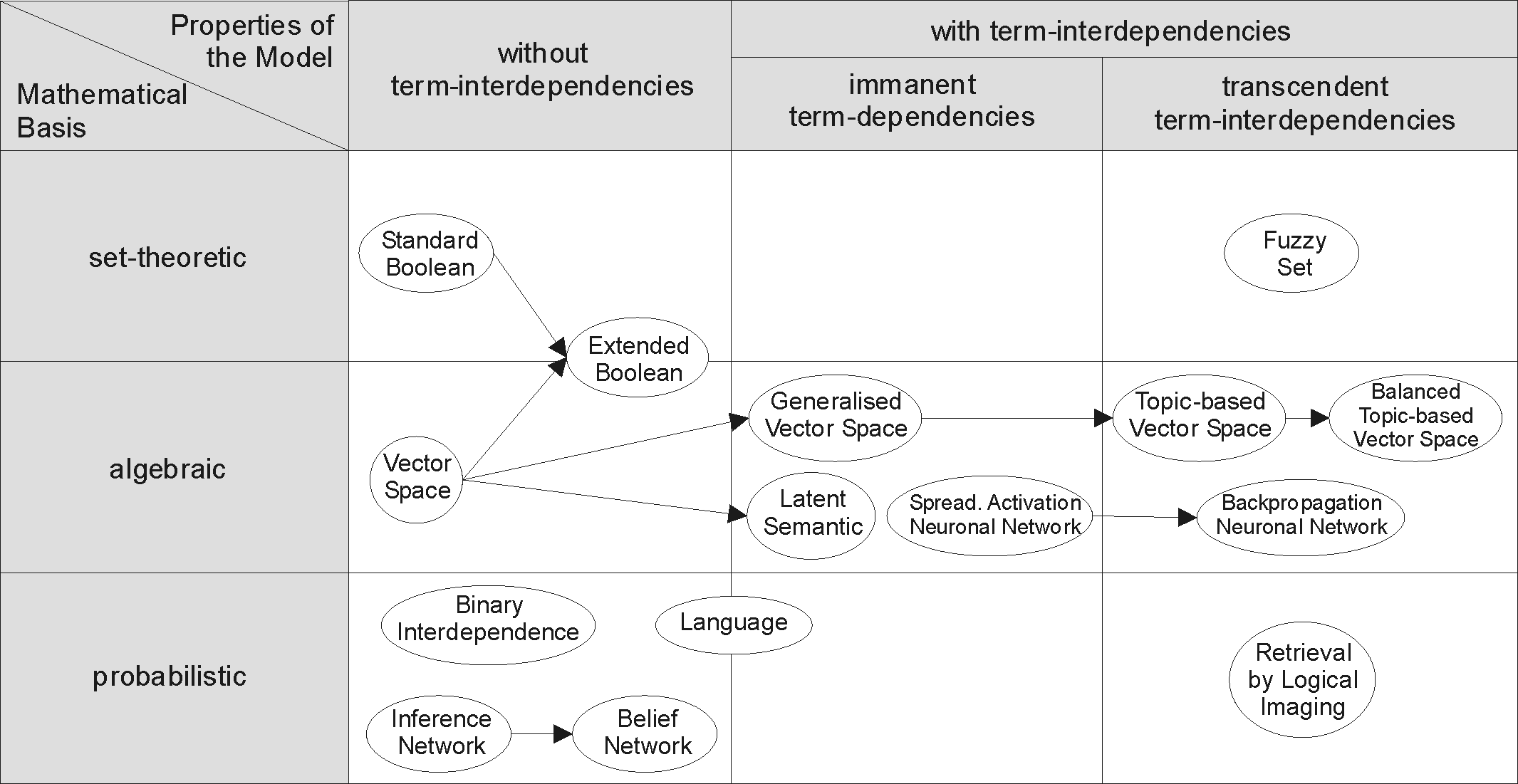|
Information School
An information school (sometimes abbreviated I-school or iSchool) is a university-level institution committed to understanding the role of information in nature and human endeavors. Synonyms include school of information, department of information studies, or information department. Information schools faculty conduct research into the fundamental aspects of information and related technologies. In addition to granting academic degrees, information schools educate information professionals, researchers, and scholars for an increasingly information-driven world. Information school can also refer, in a more restricted sense, to the members of the iSchools organization (formerly the "iSchools Project"), as governed by the iCaucus. [...More Info...] [...Related Items...] OR: [Wikipedia] [Google] [Baidu] |
University
A university () is an institution of higher (or tertiary) education and research which awards academic degrees in several academic disciplines. Universities typically offer both undergraduate and postgraduate programs. In the United States, the designation is reserved for colleges that have a graduate school. The word ''university'' is derived from the Latin ''universitas magistrorum et scholarium'', which roughly means "community of teachers and scholars". The first universities were created in Europe by Catholic Church monks. The University of Bologna (''Università di Bologna''), founded in 1088, is the first university in the sense of: *Being a high degree-awarding institute. *Having independence from the ecclesiastic schools, although conducted by both clergy and non-clergy. *Using the word ''universitas'' (which was coined at its foundation). *Issuing secular and non-secular degrees: grammar, rhetoric, logic, theology, canon law, notarial law.Hunt Janin: "The university ... [...More Info...] [...Related Items...] OR: [Wikipedia] [Google] [Baidu] |
Information Architecture
Information architecture (IA) is the structural design of shared information environments; the art and science of organizing and labelling websites, intranets, online communities and software to support usability and findability; and an emerging community of practice focused on bringing principles of design, architecture and information science to the digital landscape. Typically, it involves a model or concept of information that is used and applied to activities which require explicit details of complex information systems. These activities include library systems and database development. Information management lies between data management and knowledge management. Data management focuses on handling individual pieces of data for example by using databases. Knowledge management focuses on information that exists within a humans mind, and how to extract and share this. Information Architecture is distinct from process management but there are often valuable interactions betw ... [...More Info...] [...Related Items...] OR: [Wikipedia] [Google] [Baidu] |
Library Management
Library management is a sub-discipline of institutional management that focuses on specific issues faced by libraries and library management professionals. Library management encompasses normal managerial tasks, as well as intellectual freedom and fundraising responsibilities. Issues faced in library management frequently overlap with those faced in managing non-profit organizations. The basic functions of library management include overseeing all library operations, managing the library budget, planning and negotiating the acquisition of materials, Interlibrary Loan LLrequests, stacks maintenance, over seeing fee collection, event planning, fundraising, and human resources. Common library construct Most of the libraries that store physical media like books, periodicals, film, and other objects adhere to some derivative of the Dewey Decimal System as their method for tagging, storing, and retrieving materials based on unique identifiers. The use of such systems have caused li ... [...More Info...] [...Related Items...] OR: [Wikipedia] [Google] [Baidu] |
Digital Preservation
In library and archival science, digital preservation is a formal endeavor to ensure that digital information of continuing value remains accessible and usable. It involves planning, resource allocation, and application of preservation methods and technologies,Day, Michael. "The long-term preservation of Web content". Web archiving (Berlin: Springer, 2006), pp. 177-199. . and it combines policies, strategies and actions to ensure access to reformatted and "born-digital" content, regardless of the challenges of media failure and technological change. The goal of digital preservation is the accurate rendering of authenticated content over time.Evans, Mark; Carter, Laura. (December 2008). The Challenges of Digital Preservation. Presentation at the Library of Parliament, Ottawa. The Association for Library Collections and Technical Services Preservation and Reformatting Section of the American Library Association, defined digital preservation as combination of "policies, strategies an ... [...More Info...] [...Related Items...] OR: [Wikipedia] [Google] [Baidu] |
Preservation (library And Archival Science)
In Library science, library and archival science, preservation is a set of preventive conservation activities aimed at prolonging the life of a record, book, or object while making as few changes as possible. Preservation activities vary widely and may include monitoring the condition of items, maintaining the temperature and humidity in collection storage areas, writing a plan in case of emergencies, digitizing items, writing relevant metadata, and increasing accessibility. Preservation, in this definition, is practiced in a library or an archive by a librarian, archivist, or other professional when they perceive a record is in need of maintenance. Preservation should be distinguished from interventive Conservation and restoration of books, manuscripts, documents and ephemera, conservation and restoration, which refers to the treatment and repair of individual items to slow the process of decay, or restore them to a usable state. Preventive conservation is occasionally used int ... [...More Info...] [...Related Items...] OR: [Wikipedia] [Google] [Baidu] |
Conservation-restoration
The conservation and restoration of cultural property focuses on protection and care of cultural property (tangible cultural heritage), including artworks, architecture, archaeology, and museum collections. Conservation activities include preventive conservation, examination, documentation, research, treatment, and education. This field is closely allied with conservation science, curators and registrars. Definition Conservation of cultural property involves protection and restoration using "any methods that prove effective in keeping that property in as close to its original condition as possible for as long as possible." Conservation of cultural heritage is often associated with art collections and museums and involves collection care and management through tracking, examination, documentation, exhibition, storage, preventive conservation, and restoration. The scope has widened from art conservation, involving protection and care of artwork and architecture, to conservati ... [...More Info...] [...Related Items...] OR: [Wikipedia] [Google] [Baidu] |
Usability
Usability can be described as the capacity of a system to provide a condition for its users to perform the tasks safely, effectively, and efficiently while enjoying the experience. In software engineering, usability is the degree to which a software can be used by specified consumers to achieve quantified objectives with effectiveness, efficiency, and satisfaction in a quantified context of use. The object of use can be a software application, website, book, tool, machine, process, vehicle, or anything a human interacts with. A usability study may be conducted as a primary job function by a ''usability analyst'' or as a secondary job function by designers, technical writers, marketing personnel, and others. It is widely used in consumer electronics, communication, and knowledge transfer objects (such as a cookbook, a document or online help) and mechanical objects such as a door handle or a hammer. Usability includes methods of measuring usability, such as needs analysis and t ... [...More Info...] [...Related Items...] OR: [Wikipedia] [Google] [Baidu] |
User Experience Design
User experience design (UX design, UXD, UED, or XD) is the process of defining the experience a user would go through when interacting with a digital product or website. Design decisions in UX design are often driven by research, data analysis, and test results rather than aesthetic preferences and opinions. Unlike user interface design, which focuses solely on the design of a computer interface, UX design encompasses all aspects of a user's perceived experience with a product or website, such as its usability, usefulness, desirability, brand perception, and overall performance. UX design is also an element of the customer experience (CX), which encompasses all aspects and stages of a customer's experience and interaction with a company. History The field of user experience design is a conceptual design discipline and has its roots in human factors and ergonomics, a field that, since the late 1940s, has focused on the interaction between human users, machines, and the contextual en ... [...More Info...] [...Related Items...] OR: [Wikipedia] [Google] [Baidu] |
Knowledge Management
Knowledge management (KM) is the collection of methods relating to creating, sharing, using and managing the knowledge and information of an organization. It refers to a multidisciplinary approach to achieve organisational objectives by making the best use of knowledge. An established List of academic disciplines, discipline since 1991, KM includes courses taught in the fields of business administration, information systems, management, Library science, library, and information science. Other fields may contribute to KM research, including information and media, computer science, public health and policy, public policy. Several universities offer dedicated master's degrees in knowledge management. Many large companies, public institutions, and non-profit organisations have resources dedicated to internal KM efforts, often as a part of their strategic management, business strategy, information technology, IT, or human resource management departments. Several consulting companies ... [...More Info...] [...Related Items...] OR: [Wikipedia] [Google] [Baidu] |
Telecommunication
Telecommunication is the transmission of information by various types of technologies over wire, radio, optical, or other electromagnetic systems. It has its origin in the desire of humans for communication over a distance greater than that feasible with the human voice, but with a similar scale of expediency; thus, slow systems (such as postal mail) are excluded from the field. The transmission media in telecommunication have evolved through numerous stages of technology, from beacons and other visual signals (such as smoke signals, semaphore telegraphs, signal flags, and optical heliographs), to electrical cable and electromagnetic radiation, including light. Such transmission paths are often divided into communication channels, which afford the advantages of multiplexing multiple concurrent communication sessions. ''Telecommunication'' is often used in its plural form. Other examples of pre-modern long-distance communication included audio messages, such as coded drumb ... [...More Info...] [...Related Items...] OR: [Wikipedia] [Google] [Baidu] |
Information Security
Information security, sometimes shortened to InfoSec, is the practice of protecting information by mitigating information risks. It is part of information risk management. It typically involves preventing or reducing the probability of unauthorized/inappropriate access to data, or the unlawful use, disclosure, disruption, deletion, corruption, modification, inspection, recording, or devaluation of information. It also involves actions intended to reduce the adverse impacts of such incidents. Protected information may take any form, e.g. electronic or physical, tangible (e.g. paperwork) or intangible (e.g. knowledge). Information security's primary focus is the balanced protection of the confidentiality, integrity, and availability of data (also known as the CIA triad) while maintaining a focus on efficient policy implementation, all without hampering organization productivity. This is largely achieved through a structured risk management process that involves: * identifying inform ... [...More Info...] [...Related Items...] OR: [Wikipedia] [Google] [Baidu] |
Information Retrieval
Information retrieval (IR) in computing and information science is the process of obtaining information system resources that are relevant to an information need from a collection of those resources. Searches can be based on full-text or other content-based indexing. Information retrieval is the science of searching for information in a document, searching for documents themselves, and also searching for the metadata that describes data, and for databases of texts, images or sounds. Automated information retrieval systems are used to reduce what has been called information overload. An IR system is a software system that provides access to books, journals and other documents; stores and manages those documents. Web search engines are the most visible IR applications. Overview An information retrieval process begins when a user or searcher enters a query into the system. Queries are formal statements of information needs, for example search strings in web search engines. In inf ... [...More Info...] [...Related Items...] OR: [Wikipedia] [Google] [Baidu] |





